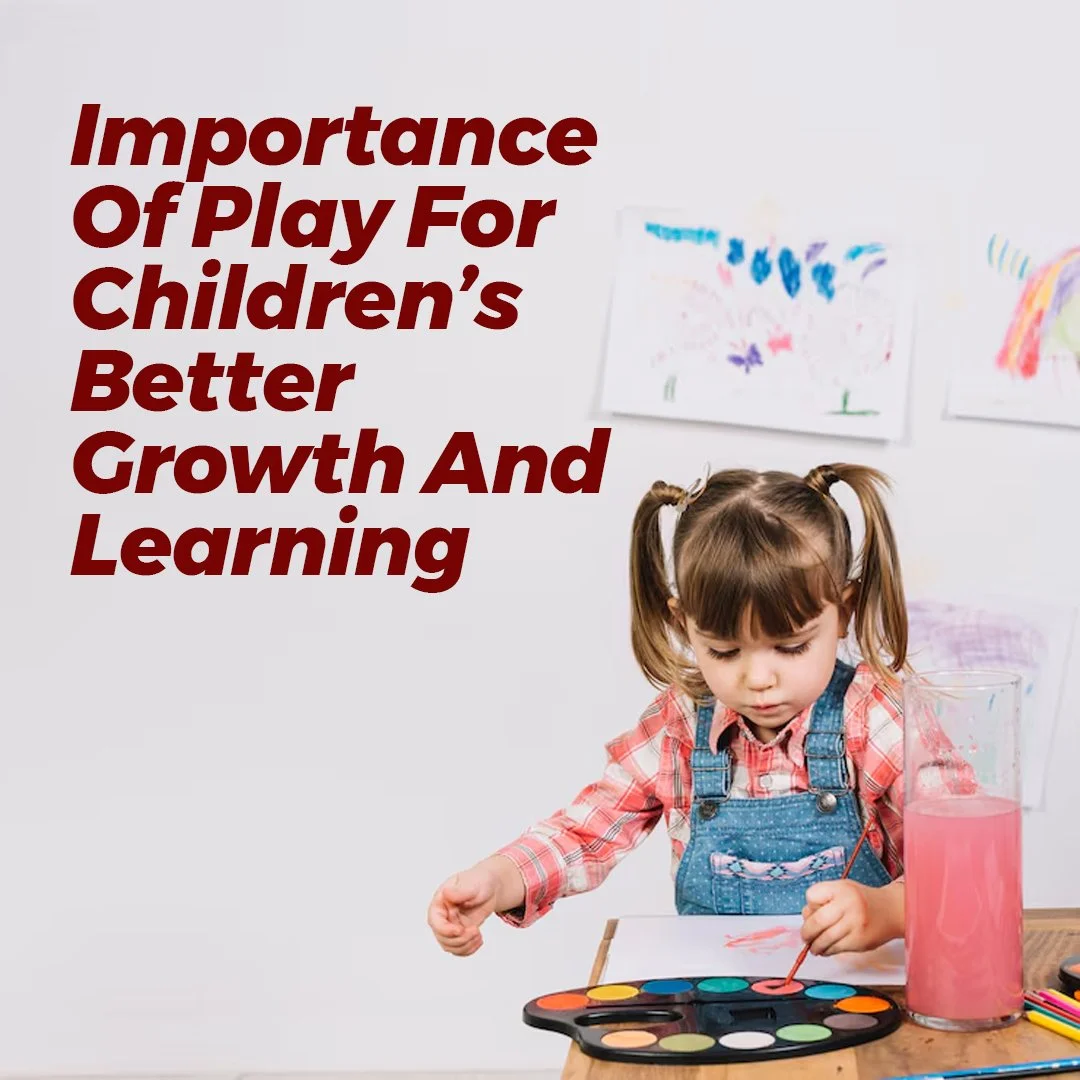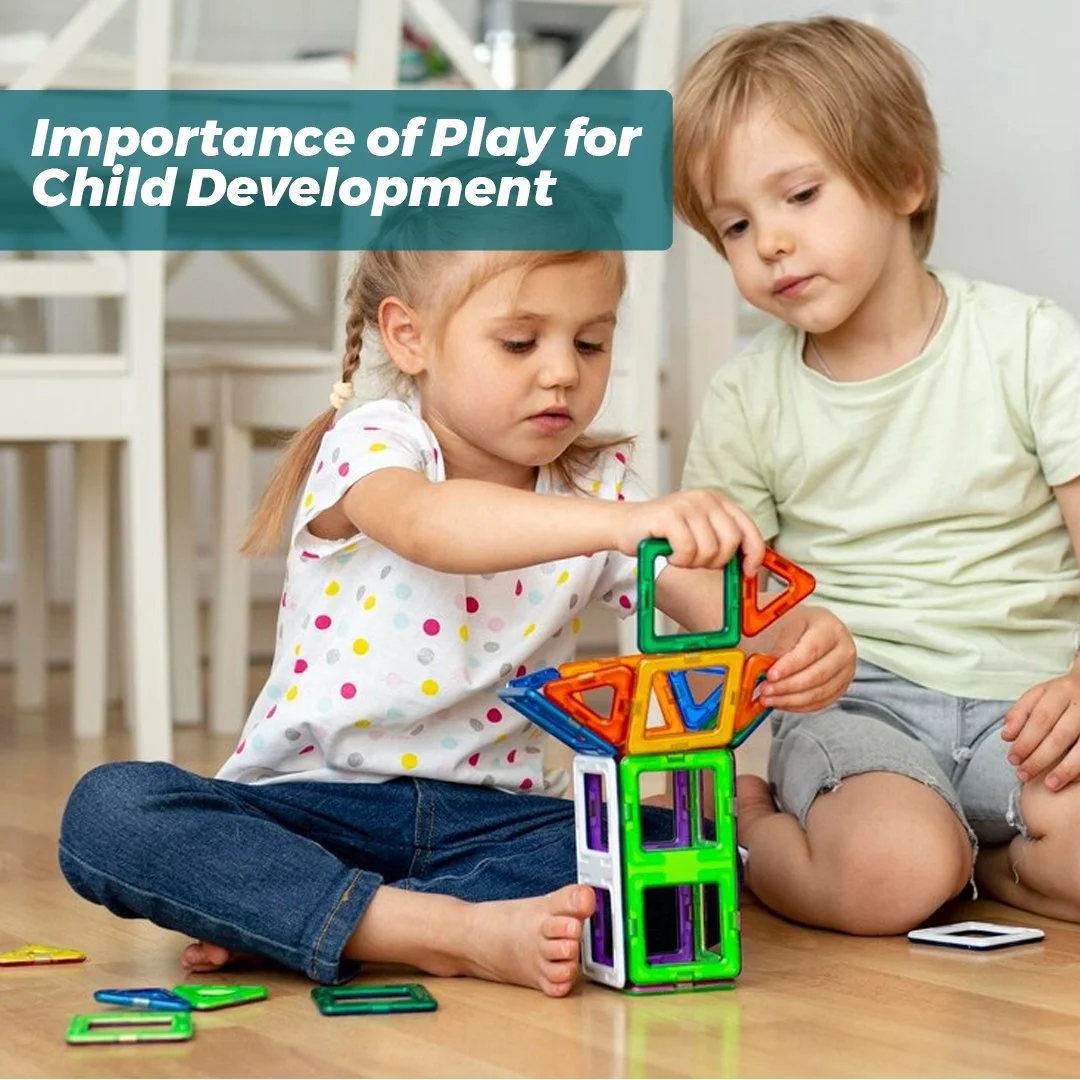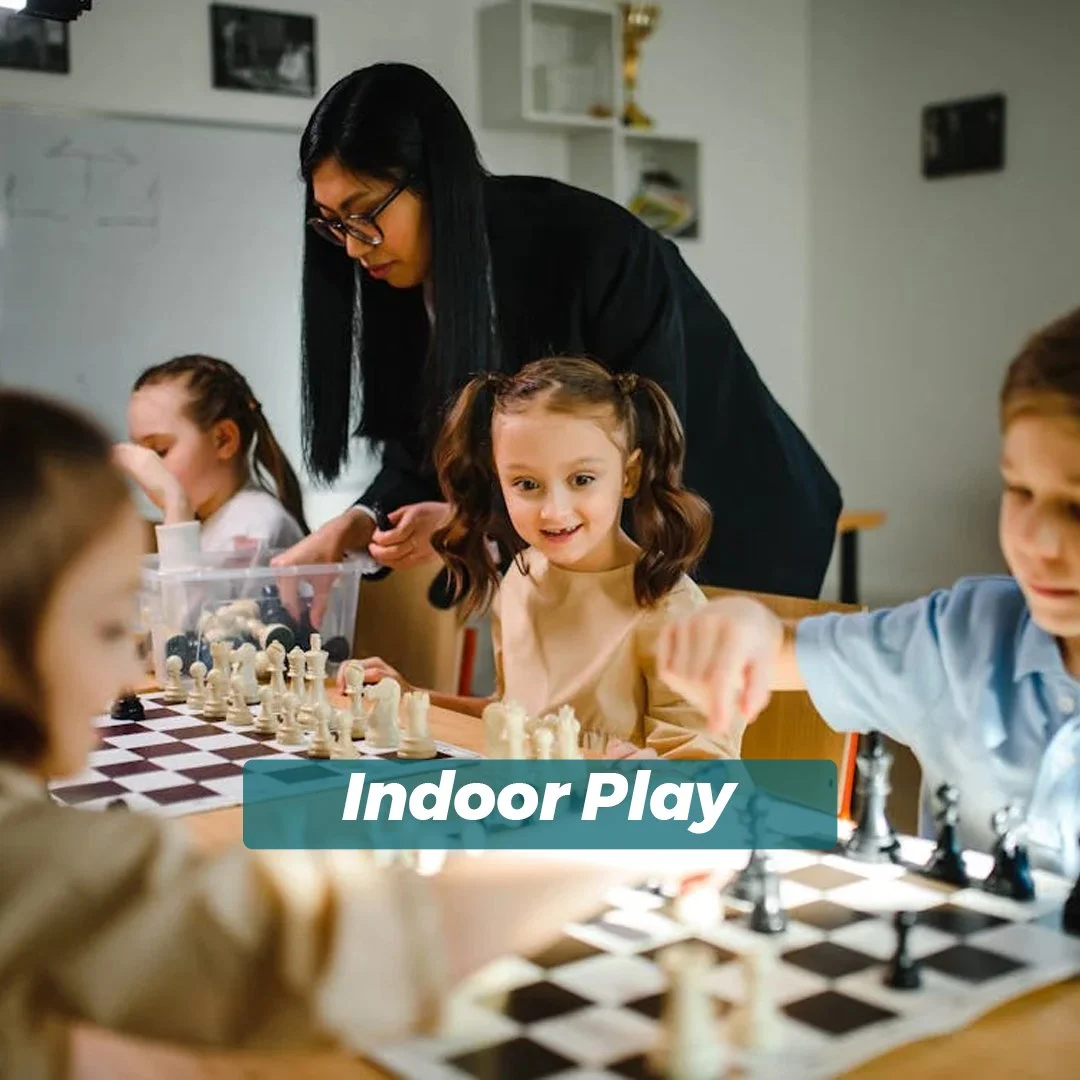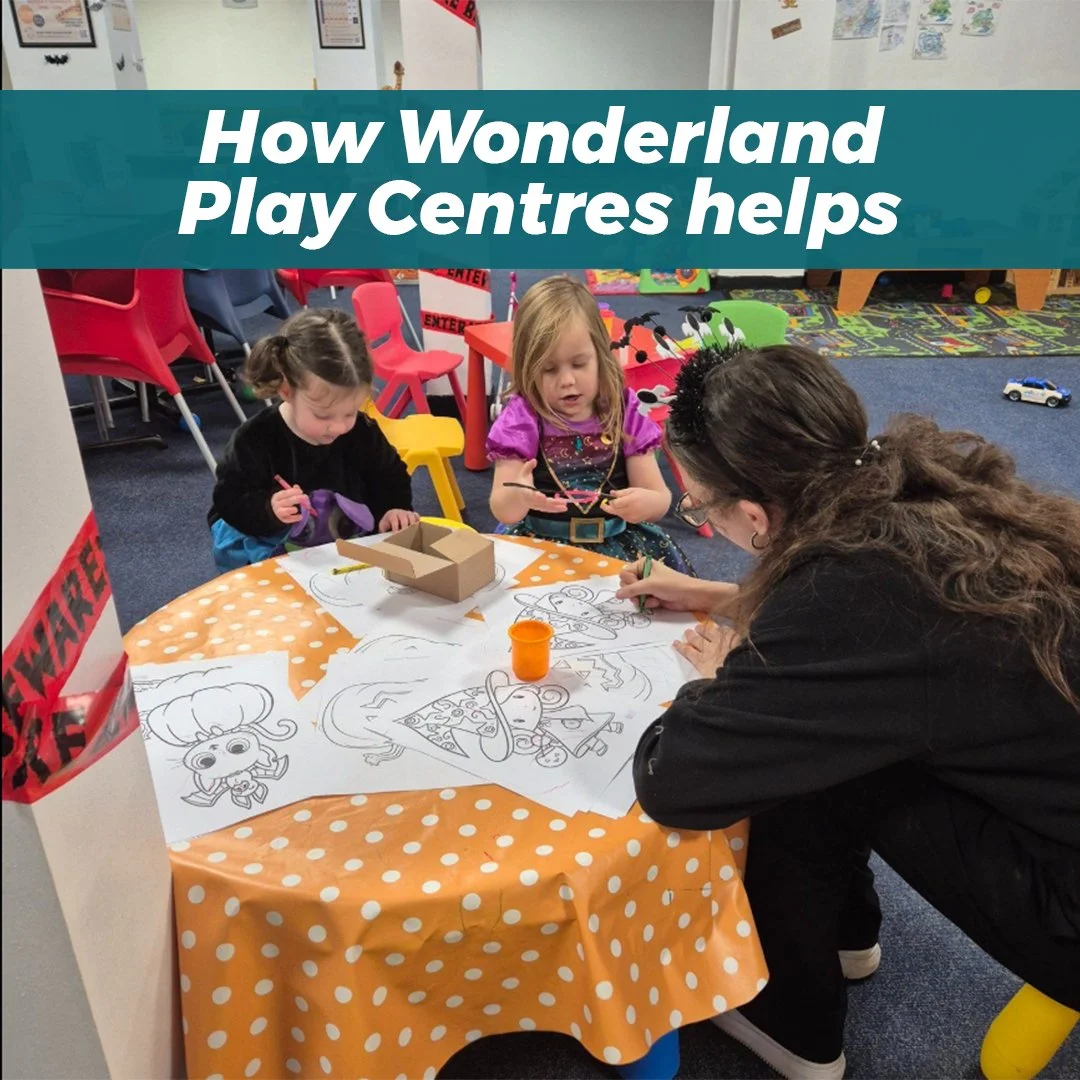Importance Of Play For Children’s Better Growth And Learning
It's normal for parents to be concerned about their children's future. Are they learning enough? Are they developing the skills they need to thrive? We’re often so focused on structured learning, from school to extracurricular activities, that we forget the importance of play in child development.
Here’s the truth: Play is not just fun—it’s an essential part of your child’s growth and learning. It’s through play that children develop the very skills they will use throughout their lives. It helps them solve problems, understand the world around them, and build emotional resilience. But too often, parents are so caught up in finding the “perfect” educational activities that they forget the most basic (yet powerful) tool for development: play.
In this blog, we’ll walk you through the importance of play, explore various play centre options available in the UK, and help you understand how play helps your child’s development, both mentally and physically. If you’ve been wondering how to balance play and learning in your child’s routine, you're in the right place. Let’s dive into why play should be at the top of your child’s to-do list!
Importance of Play for Child Development
As parents, we all want to ensure that our children grow up to be healthy, happy, and well-rounded individuals. Play is the key to releasing their greatest potential. It is not just a way for children to pass the time; it is a vital part of their development. Through play, children learn essential skills that go far beyond entertainment. Here’s a list of why the importance of play matters for your child's growth:
Cognitive Development
Play is like exercise for the brain.
Activities such as puzzles, memory games, or building blocks help develop problem-solving skills and improve concentration.
As children figure out how to complete tasks or overcome challenges in play, they strengthen their cognitive abilities, laying the foundation for future learning.
Physical Fitness
It’s not just about sitting and playing with toys—active play offered by soft play such as running, jumping, climbing, and playing ball games is critical for building physical strength and coordination.
Whether it's climbing a jungle gym or hopping on a trampoline, physical activities help develop gross motor skills, balance, and muscle control.
A child who plays regularly is not only staying fit but is also developing the motor skills they’ll need for everyday tasks like dressing, writing, or riding a bike.
Social Skills
One of the biggest importance of play is the opportunity it provides for social interaction.
Through group activities like tag, hide-and-seek, or team sports, children learn how to share, take turns, and cooperate with others.
These interactions lay the foundation for emotional intelligence and communication skills, teaching children how to navigate conflict and build friendships.
Social play is crucial for children to develop empathy and understand social norms.
Incorporating a variety of play activities into your child’s daily routine ensures that you fulfil the importance of play they develop in all areas—cognitive, physical, and social. Now that you understand the importance of play, let’s explore some basic play ideas that can help your child grow and learn in fun, engaging ways.
Basic Play Ideas for Children’s Development
As we know, not all play is equal when it comes to a child’s development. The types of activities children engage in can significantly influence how they grow and learn. By choosing the right types of play, you can help your child develop important skills in a fun and engaging way. Here are some basic play ideas that support well-rounded growth:
Imaginative Play
Encouraging your child to engage in pretend play is one of the best ways to foster creativity and language development.
Whether it’s pretending to cook dinner, being a doctor, or acting out a favourite story, imaginative play allows children to explore different scenarios and roles.
Their creativity is piqued by this kind of play, which also helps kids think creatively, expand their vocabulary, and comprehend various viewpoints.
It also enhances emotional intelligence by allowing them to express and process their feelings in a safe, creative way.
Outdoor Play
Simple outdoor games like tag, hide-and-seek, or jumping rope not only provide physical exercise but also improve coordination, balance, and strength.
Outdoor play offers children the freedom to run, jump, and explore, which are vital activities for developing gross motor skills.
Additionally, these activities expose children to social situations where they learn about teamwork, following rules, and taking turns, all of which contribute to their social growth.
Indoor Play
Not all play needs to happen outside—indoor activities are equally important in a child’s development.
Activities like board games, arts and crafts, or even a simple game of building forts can stimulate creativity and provide opportunities for children to practice focus and patience.
Indoor play also allows for bonding time with family, encouraging emotional development and teaching children how to interact in smaller, more intimate settings.
Incorporating these play activities into your child’s routine helps nurture their physical, cognitive, and emotional development. Now that we know the importance of play and some fun play ideas, let’s explore how play centres can enhance your child’s learning and growth even further.
How Wonderland Play Centres helps
When you choose Wonderland Play Centre, you’re not only giving your child a fun place to explore; you’re also ensuring their safety and development. Here’s how play centres support your child’s growth:
Safety Measures: Play centres are designed with safety in mind, featuring soft play areas, padded surfaces, and supervised environments.
Age-Appropriate Activities: Centres offer activities tailored to different age groups, ensuring that children engage in play that suits their developmental stage.
Educational Value: Wonderland play centres include interactive learning zones where children can develop problem-solving and social skills through structured activities.
Physical Development: Centres with trampoline zones, climbing walls, and obstacle courses promote physical fitness, helping children strengthen muscles and improve coordination.
Choosing a play centre gives your child a controlled, enriching environment to grow both physically and mentally. Choosing the right play zone will give your child a safe and enriching environment to develop essential skills while having fun click here to learn more.
Conclusion
Incorporating play into your child’s daily routine goes far beyond entertainment—it highlights the importance of play in shaping their overall development. Play strengthens cognitive skills, boosts physical health, and nurtures essential social abilities, making it a cornerstone of your child’s growth journey.
Balancing at-home activities with visits to play centres ensures a well-rounded approach to learning and development. At-home play fosters creativity and strengthens family connections, while play centres provide structured environments where children can interact with others, build teamwork skills, and explore new challenges.
Every moment spent playing, whether solving puzzles, running outdoors, or exploring imaginative scenarios, reinforces the importance of play in preparing your child for a brighter future. So, whether you’re engaging in garden games or exploring a local play zone, remember that these small moments are significant investments in your child’s well-being.
FAQ’s
-
Play enhances cognitive, physical, and social skills, laying the foundation for holistic child development.
-
Play improves problem-solving, boosts physical health, fosters creativity, and helps build essential social skills.
-
Indoor play ensures a safe environment, promotes creativity, and allows year-round activities regardless of weather.
-
Indoor play includes activities like climbing walls, soft play zones, role-playing, and games that enhance skills in a controlled setting.
-
Wonderland stands out as the best play zone in the UK, offering a mix of fun, safe, and developmental activities for children.






